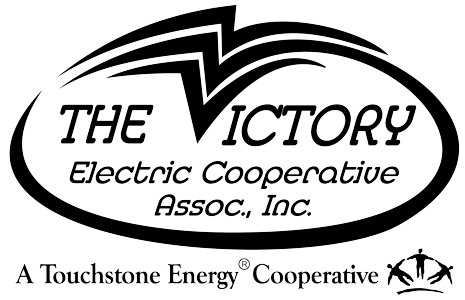Electric bills fluctuate depending on weather, energy usage and other factors, and Victory Electric knows rising costs are a primary concern for our member owners. A recent report to Kansas representatives showed that over the past several years, average Kansas electric rates have compared favorably with other states’ rates.
The average Kansas electric rate declined 0.19% overall from 2016 to 2021, according to Justin Grady with the utilities division of the Kansas Corporation Commission (KCC). The average 2021 Kansas rate and the average 2021 residential electric bill were also below those averages for the United States.
Grady, KCC chief of revenue requirements, cost of service, and finance, presented a report on the regional competitiveness of Kansas electric rates to the Kansas House utilities committee on Feb. 2.
“We’re going to give an update of where Kansas’ electric rates stand and do regional rate comparisons,” Grady said.
He shared the 2021 annual data set from an October 2022 report compiled by the Energy Information Administration (EIA). The U.S. Department of Energy agency collects and analyzes data and compiles impartial energy information.
Grady’s report for the utilities committee compared the state’s average rate with that in nine regional peer states: Colorado, Missouri, Oklahoma, Arkansas, Iowa, Minnesota, North Dakota, South Dakota and Texas.
He noted, “This is not the rate that any one customer in the state of Kansas pays for electricity.” The average rates are calculated by dividing revenue from municipal, cooperative and investor-owned utilities (IOUs) by the total energy used.
Kansas had an average rate for residential, commercial and industrial rate classes combined of 10.47 cents per kilowatt hour (kWh) in 2021, compared with the U.S. average rate of 11.10 cents/kWh. Although the Kansas average rate increased 0.87% from 2020 to 2021, that was the lowest percentage increase compared with its regional peer states.
According to the EIA, the average rate for Victory Electric in all rate classes combined in 2021 was 9.35 cents/kWh, the second lowest average rate among the 11 Kansas electric cooperatives that provided data to EIA.
From 2020 to 2021, average residential electric rates in Kansas increased 1.03%, from 12.85 cents/kWh to 12.98 cents/kWh. This was the lowest percentage increase among the regional peer states. The U.S. total average residential rate increased 3.86%, to 13.66 cents/kWh. The average Victory Electric residential rate in 2021 was 12.44 cents/kWh.
“Residential customers’ rates are not the only part of the discussion,” Grady said. Consumers’ primary concern is the total cost of their monthly bill.
The average Kansas residential bill was $115.53 per month in 2021. The average monthly bill in the U.S. in 2021 was $121.01, and the average bill for the 10 regional peer states was $115.35.
Rep. Mark Schreiber of Emporia said, “To me, it looks like we are regionally competitive,” as reported by Brad Cooper in “Sunflower State Journal.”
Several bills are being considered in the Kansas Legislature related to utilities and electric rates. Lawmakers will continue to look at how Kansas rates compare with other states and how to make them more competitive in the region.
Average Rates (Residential)
| U.S. | 13.66 cents/kWh |
| Kansas | 12.98 cents/kWh |
| Victory Electric | 12.44 cents/kWh |
Average Rates (All Rate Classes)
| U.S. | 11.10 cents/kWh |
| Kansas | 10.47 cents/kWh |
| Victory Electric | 9.35 cents/kWh |
Source: Energy Information Administration, October 2022
